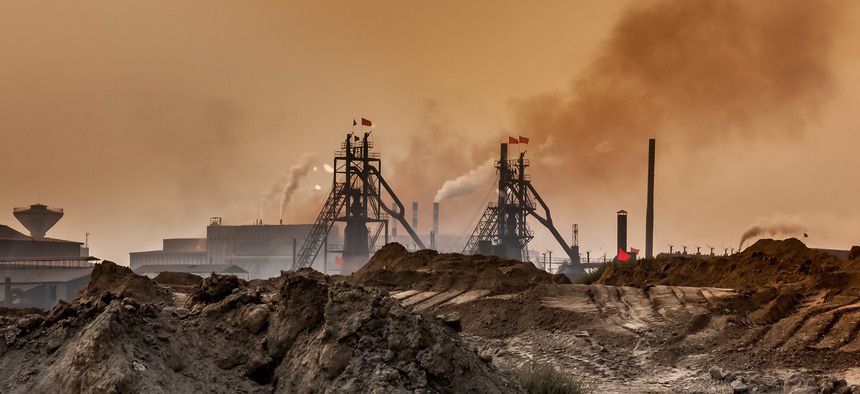

Its time for Africa
Lured by raw materials including ivory, rubber, palm oil, cocoa, tea, diamonds and tin, European colonial powers, between 1833 and 1940 steadily acquired control over Africa. By the eve of the first world war, they had colonized nearly 90 per cent of the continent. The feverish undertaking was described as the scramble for Africa, following the Berlin conference of 1884, where Europe’s rapidly industrialising countries sought an orderly exploitation of the continent’s resources.
More than a century later, and with the first phase of decolonisation over during the Cold War, the African economies are once again set to play a pivotal role on account of their resources. In the coming years the world is bound to scramble for rare earth elements and other critical minerals such as copper, lithium, nickel, cobalt in a bid to switch to clean energy backed by changing geopolitical and geo-economic dynamics.
The inclusion of the two-decade old African Union (AU) into the G20 bloc, as pitched by India, will therefore be critical, in ensuring that Africa, instead of being short changed, benefits from its resources that will power the new economy. Thus, the inclusion of AU will give it a voice at a time when the world is turning towards the continent amid a shift in power play towards the Global South.
Analysts said that India, which is currently the G20 chair, must complete the process of including the African bloc by the end of the term.
Many of the group’s most prominent members, including the United States, China, Japan, Germany, and France, have endorsed full membership for the AU, which Indian Prime Minister Narendra Modi has proposed granting at the upcoming G20 summit in New Delhi, the Project Syndicate noted.
About 30 per cent of the world’s critical mineral reserves are found in Africa. To meet the expected rise in global demand, the production of minerals and metals such as lithium, graphite and cobalt will need to increase by nearly 500 per cent by 2050, a study by the United Nations Environment Programme revealed.
“Considering this the AU must play a more focused role and channelise economic agendas, investments and trade related to critical minerals,” an Africa expert told India Narrative.
According to Africa Business, how the continent responds to the insatiable demand for its critical minerals could determine the continent’s growth trajectory in the decades to come. Currently, most of the mineral mining projects in the continent are driven by the Chinese.
Several other issues need to be resolved.
To begin with AU will need a strong representative or ‘Sherpa’ to turn things around.
While the AU has traditionally succeeded in shaping African views on diplomatic matters, opinions on economic policy tend to be fragmented and are offered only sporadically, the PS said.
Analysts also pointed out that the AU would need more coordination among its member states and present uniformity.
Baker McKenzie in a note said that for Africa, the focus now is firmly on how the global demand for critical minerals can be translated into the sustainable growth of its mineral mining operations and production facilities, and how it can be ensured that this growth will benefit the African continent and its people, not just in terms of the demand for critical minerals, but in how the continent can make use of its own resources to ramp up its energy transition and provide the continent with much needed access to clean power.The AU needs to take a lead role in chalking out a strategy to ensure Africa’s role in maintaining the supply chain for these critical minerals.
All eyes on Africa
Meanwhile, Africa has taken centre stage with South Africa hosting the 15th BRICS (Brazil-Russia-India-China-South Africa) summit in Johannesburg.
A host of African countries including Egypt, Ethiopia Alegria, Nigeria, and Zimbabwe have also expressed their interest in joining the BRICS bloc.
“Africans are not interested in the illusion of coordination. They want to see real change and real impact in tangible ways that benefit them and their societies,” South China Morning Post quoted Cameron Hudson, senior associate at the Centre for Strategic and International Studies’ Africa programme as saying.
Also read: How BRICS hopes to set the agenda for change driven by the Global South
India decisively asserted its military superiority over Pakistan during this month's brief but intense conflict,…
Trade associations and local business groups in Pakistan-occupied Gilgit-Baltistan (PoGB) launched an indefinite protest on…
A human chain and protest march was organized by various organizations in front of the…
The United States on Saturday announced the expansion of its security partnerships with India through…
Highlighting the use of indigenous platforms during Operation Sindoor, Chief of Defence Staff (CDS) General…
Congress MP Shashi Tharoor on Friday (local time) said that Colombia will issue a statement…